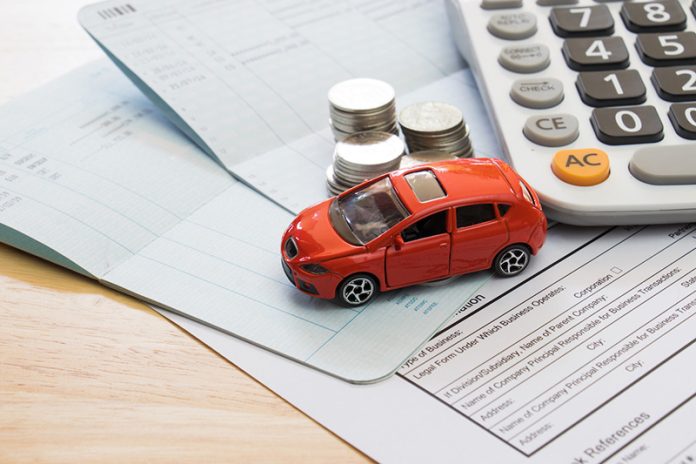If you’ve been refused car finance, it can be disheartening. In many cases, you may already know that your chances of being approved for car finance are slim. However, many applicants are surprised when they are declined and may be wondering why. One of the most important factors that affect your car finance approval rates is your credit score. However there are other factors which can determine the likelihood of getting a car on finance, the guide below looks at these factors in more detail and what to do after your car finance has been declined.
1. Bad credit
Having a bad credit score can seriously affect your chances of getting a car on finance. If you’re wondering, can you get a car on finance with bad credit, there can be options available to you but it may be worth improving your credit score first, before you start applying. When it comes to finance, it’s all about the risk you pose to lenders. Lenders want to know how you’re going to pay your finance back and often use your previous borrowing history to get an idea of the likelihood that you’ll stick to the rule of your finance agreement. Missed or late payments in the past can put lenders off and in turn have a negative impact on your credit score.
2. Age
Sometimes you may be declined car finance for the simple fact that you don’t meet the lenders criteria. Car finance is a legal agreement which means that you need to be at least 18 years old before you can get approved. Similarly, many lenders have set a maximum age requirement of around 70 years old but it’s worth checking the lenders criteria before you start applying for finance.
3. Employment status
It may seem obvious, but it can be hard to get a car when you don’t have a job. No current employment means no income, and this means you can’t afford to pay back your finance. If you receive benefit income, there can be options available with the right lender. If you have a full-time job and steady income this can be the most favourable to lenders as you can supply 3 months’ worth of bank statements to how your earnings. It’s worth checking the minimum income amount set by lenders though as you may be declined if you don’t meet their requirements.
4. No previous borrowing history
Many people assume that never taking out credit or finance is a good thing. However, you may find yourself with a low credit score due to no previous credit history. It can be hard to find a car finance lender who doesn’t perform a credit check so it’s worth checking your credit before you apply. When you haven’t borrowed money before, lenders can’t predict what type of borrower you will be. It can eb a good idea to take out a small amount of credit either in the form of a credit card or a mobile phone contract in your name. If you look to get a credit building card, you should use it to make small purchases on and then pay them back in full and on time to help prove your creditworthiness.
5. Driving license type
When you make an application for car finance, lenders will also ask what type of driving license you have. If you’re going to be driving the car you are financing, you will need a full UK license in order to get approved. You can get a finance deal with a provisional license, but your options may be more limited. It can be worth waiting to pass your test before you start applying as you can get access to mor lenders and better rates.
What to do if you have been refused car finance?
- Work on your credit score. Not only is managing your credit score correctly a better thing for car finance but having a good or excellent score can have a massive impact on your financial life. Showing you are good at managing your money and financial commitments can see easier car finance approvals, better interest rates and lower monthly payments. It’s a good idea to increase your credit score in the run up to a car finance application to help get you a better deal and out you in a better financial position.
- Limit applications. If you’ve already been refused car finance, you may be tempted to keep on applying with ither lenders to see who will accept you. However making multiple applications for car finance in a short space of time can negative impact your credit score. Instead, you should contact the lender who ejected you to ask why they’d declined your applications and them make improvement to increase your chances before you start applying again.
- Find the right lender. If you’ve been declined due to bad credit or adverse employment history, it can be worth finding a specialist lender to help. There are many bad credit friendly lenders who can help you get an affordable finance deal. You may be declined by mainstream lenders if you don’t have a job or are self-employed so it can be worth researching lenders or brokers that are better suited to your circumstances.
Disclaimer: This article contains sponsored marketing content. It is intended for promotional purposes and should not be considered as an endorsement or recommendation by our website. Readers are encouraged to conduct their own research and exercise their own judgment before making any decisions based on the information provided in this article.




































































